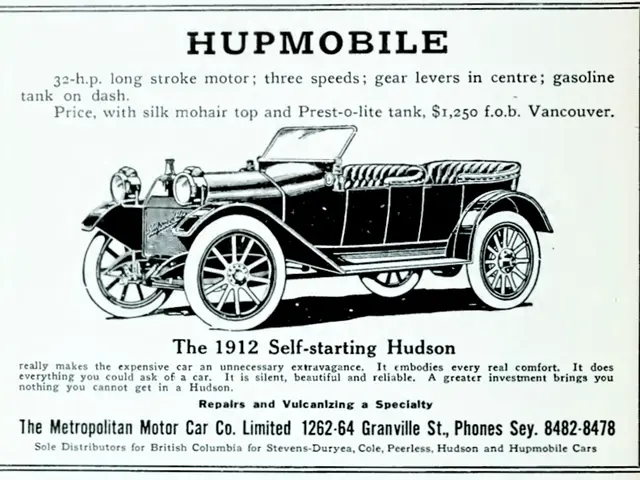European Tesla sales dropped by half within a single month. - Europe's Tesla sales plummet by half within a month period.
European Electric Vehicle Market Shifts: Tesla's Sales Halve in a Month as Competition Intensifies
In a matter of months, US electric vehicle manufacturer Tesla is facing significant challenges in Europe's rapidly expanding electric vehicle (EV) market. According to data from the European automakers' association Acea, new registrations for Tesla vehicles plummeted by more than half in April, marking a 46% year-to-date decline with 41,677 cars sold.
While the overall European car market remains stagnant, the electric vehicle segment is thriving. In the first four months of the year, pure battery electric vehicles (BEVs) accounted for 15.3% of new registrations, up from 12% in the same period last year, representing a growth of over a quarter.
Tesla's struggles come as competitors, both European and Chinese, are capitalizing on the opportunities in the burgeoning EV market. Volkswagen, for instance, has more than doubled its deliveries of pure electric vehicles in Europe during the first quarter, leaving Tesla in its wake. Chinese electric vehicle market leader BYD is also venturing into the European market and surpassed Tesla in April, with 7,231 cars sold, just ahead of Tesla's 7,165, according to market researchers at Jato Dynamics.
The success of Chinese brands like BYD is not exclusive to Europe; it has been gaining traction in countries like the United Kingdom, Spain, and Italy, particularly due to their more affordable offerings[1]. Despite this, Tesla's sales in Germany are at a low level, with only around 12% of newly registered models going to private owners in the first four months of the year.
Brussels tariffs on imported EVs from the People's Republic have been ineffective in slowing down Chinese providers, as two out of three cars from Chinese manufacturers now contain at least a plug-in drive, meaning they are not subject to increased tariffs[1]. BYD, in response, has unveiled its electric compact car, the Dolphin Surf, at an introductory price of €19,990, aiming to cater to budget-conscious consumers who are calling for more affordable electric vehicles to promote electric mobility[1].
Volkswagen, on the other hand, benefits from its strong reputation for quality on its home market and abroad[2]. A recent survey commissioned by consultancy BearingPoint in the USA, China, France, and Germany found that German brands ranked first in trust in quality in each of the four markets[2]. Germany's established automakers have a head start, with a steady consumer base and strong after-sales service networks, which may give them an edge in the competitive EV landscape.
Despite the setbacks, BYD executive Stella Li remains optimistic about the company's prospects in Europe. She announced further sales increases in the coming months and is focusing on the concern of many European drivers: post-purchase service[2]. BYD is investing in its own production facilities in Hungary and Turkey and is open to further investments, although future plans for Germany remain undisclosed[2].
Tesla, led by controversial CEO Elon Musk, is still grappling with the effects of increased competition, negative consumer perceptions, and a broader market shift towards more diversified EV offerings[1][2].
- Tesla
- BYD
- Volkswagen
- Elon Musk
- Grunheide
[1]: Relevant from Enrichment Data, refers to the negative perceptions of Elon Musk and cheaper alternatives from Chinese brands like BYD and SAIC Motor impacting Tesla's sales.[2]: Relevant from Enrichment Data, refers to the established brands, innovative offerings, and strong after-sales service networks of European manufacturers like Volkswagen giving them an advantage in the competitive EV market.
- Despite facing a 46% year-to-date decline in sales, Tesla is still contending with increased competition in Europe's expanding electric vehicle market.
- BYD, a Chinese electric vehicle market leader, surpassed Tesla in April sales and has announced further increases for the coming months, focusing on post-purchase service concerns.
- Volkswagen, benefiting from its strong reputation for quality, increased its delivery of pure electric vehicles in Europe during the first quarter, leaving Tesla in its wake.
- Elon Musk, the controversial CEO of Tesla, is still navigating the effects of increased competition, negative consumer perceptions, and a broader market shift towards diversified EV offerings.
- European manufacturers, like Volkswagen, benefit from their established consumer base, innovative offerings, and strong after-sales service networks, giving them an edge in the competitive electric vehicle market.








